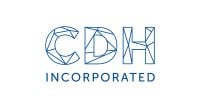

Legal and governance manager | Mining Qualifications Authority



Songezo Maqubela
Legal and governance manager | Mining Qualifications Authority
What are the most significant cases and transactions that your legal team has recently been involved in?
At the Mining Qualifications Authority (MQA), we have adopted a holistic and proactive approach to reporting and monitoring all potential disputes to ensure their prevention. In the last year, we successfully resolved over 50% of our current litigation disputes.
Our involvement in innovative legal cases, such as arbitration aimed at disgorging profits from an irregularly awarded tender, is noteworthy. Such litigation rarely reaches its conclusion in the public sector, and our commitment ensures that public monies are used for the public’s benefit. The specific case in question amounted to over R20m, inclusive of costs and exclusive of interest.
Could you share an example of a time when you came up with an innovation that improved how your legal team works and did not come at a large expense?
Law and the application of law involves the use of pre-determined and accepted frameworks and concepts in a creative and useful way. This implies that it is crucial to create an environment where the best ideas for achieving a certain goal can thrive. In many legal departments, especially within legal firms, there is often a hierarchy that prevails over ideas. This means that the ideas of the more senior individuals are typically implemented, rather than the adoption of the best ideas.
What I have done is create an environment where the best ideas thrive and win. This is primarily achieved by using a framework developed by billionaire hedge fund investor Ray Dalio, known as an ‘idea meritocracy,’ applied to a legal environment.
This involves a step-by-step process, firstly, we must have the best possible options, that is that role players collaborate to identify potential avenues and legal principles to pursue in a given situation. Secondly, disagreement and engagement. All role players must have open and honest discussions regarding the possible options, legal principles, and avenues. This requires honesty, transparency, and disagreement on the issues. Finally, test all the options based on the credibility of the individuals proposing them and the jurisprudence involved. This process entails examining the jurisprudence related to each option and considering the perspectives of relevant forums on these options. Subsequently, apply the best ideas determined by this assessment.
This approach ensures that all options and ideas are brought to the fore, explored thoroughly, and that the organisation ultimately gets the best idea and solution – not just the idea that comes from the most senior person. This ensures that the “best ideas win.”
How do you see the general counsel role evolving in South Africa over the next five-ten years?
I think the best way to answer this is to look at the main trends that could influence the general counsel role in South Africa over the next few years. We can then explore how these trends might change the role.
The management of knowledge and data will be one of the most important roles that the general counsel will play. The insights gained from the proper management of both will be a valuable competitive advantage for any organisation.
I also believe that the regulation of legal services in South Africa will increasingly shift towards allowing the involvement of various stakeholders, not limited to just traditional lawyers. Consequently, general counsel will need to possess a more diverse skill set and be able to collaborate with other team members.
Furthermore, I foresee a growth in inter-disciplinary teams. There will be an increased demand for value. This will compel general counsel to demonstrate value through alternative avenues, such as illustrating how the law affects the overall strategy, balance sheet, and goals of the organisation. Consequently, an in-house department may evolve to include not only lawyers but also officials with backgrounds in accounting, risk management, finance, and technology.
Legal and governance manager | Mining Qualifications Authority ZA